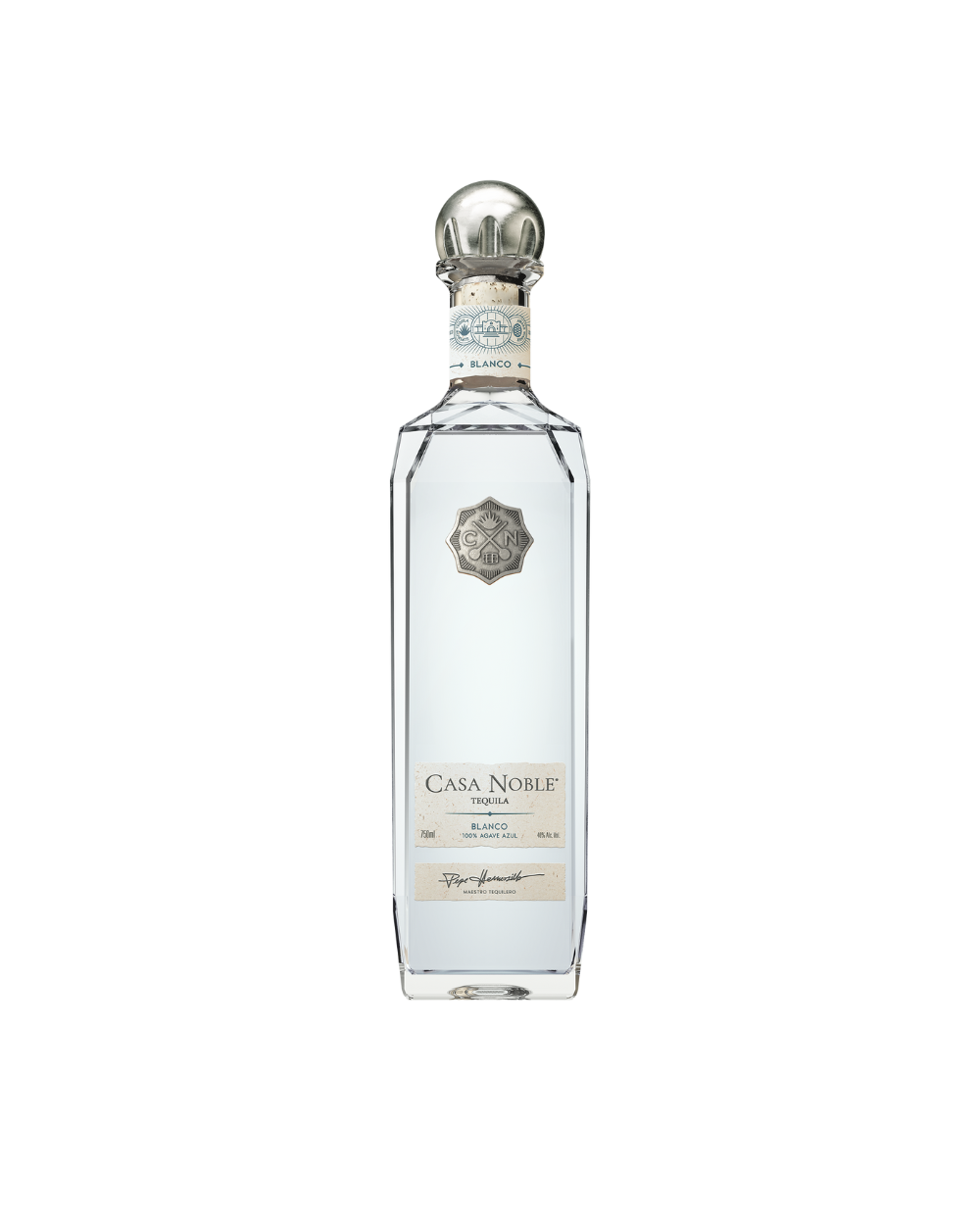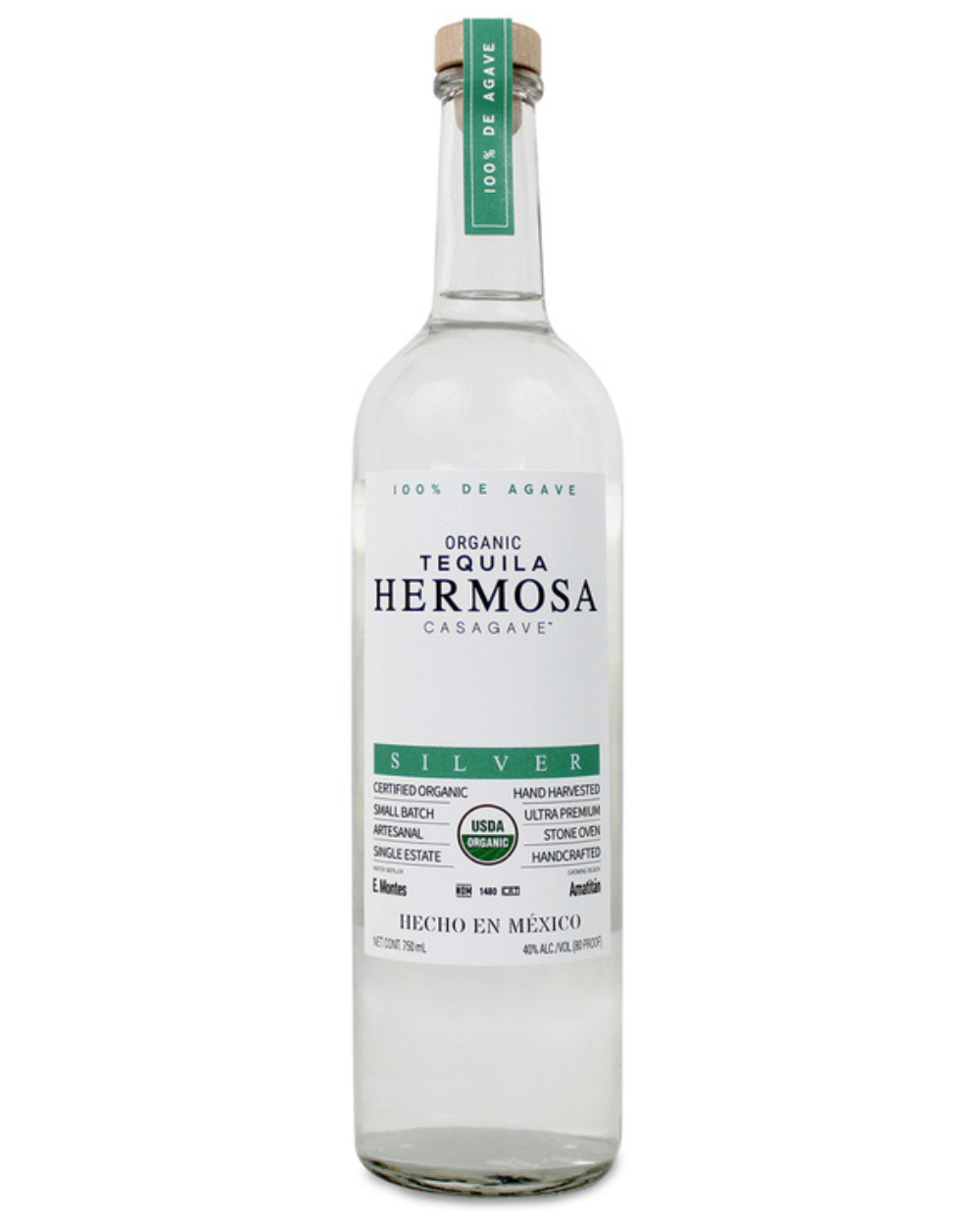10 Organic Tequila Brands You Need to Try
With the rise in popularity of organic products, it's no surprise that organic tequila is also gaining attention. Made from the blue agave plant, tequila is a beloved spirit that can be enjoyed in a variety of ways. And if you're someone who values organic and sustainable practices, then organic tequila is the way to go.
But with so many brands on the market, how do you know which ones are worth trying? Don't worry, I've tried them for you. Here I'm sharing a few of my favorite organic tequila brands and answering all of your questions about organic tequila and whether or not it's worth it.
Contents
Can Tequila Be Organic?
Which is the healthiest tequila?
Is tequila the healthiest alcohol?
Is organic tequila worth it?
Is Tequila anti-inflammatory?
How can I tell if a tequila is organic?
Are all tequila brands organic?
What are the different kinds of tequila?
What are the differences between organic tequila and non-organic tequila?
What are the best organic tequila brands?
Can Tequila Be Organic?
Yes, tequila can be organic! To be certified organic, tequila must meet specific criteria set by the Organic Products Act of 1990. This includes using organic farming practices, such as avoiding the use of synthetic pesticides and fertilizers and using organic agave plants.
Organic tequila brands often prioritize sustainability and environmental responsibility. They strive to reduce their carbon footprint, conserve water, and support local communities. By choosing organic tequila, you can enjoy a high-quality spirit while also supporting a more sustainable and eco-friendly industry.
Which is the healthiest tequila?
When it comes to tequila, the healthiest option is typically one that is made from 100% blue agave. This means that the tequila is made solely from the blue agave plant, without any added sugars or additives. These types of tequila are often labeled as "100% agave" or "100% blue agave."
By choosing tequila that is made from 100% agave, you can avoid added sugars and other additives that may not be as healthy. This can result in a cleaner and more pure tequila that is better for your overall health.
Is tequila the healthiest alcohol?
While tequila may have some health benefits compared to other types of alcohol, it is not necessarily the healthiest option overall. Moderate consumption of tequila has been linked to potential benefits such as improving digestion, aiding in weight loss, and reducing the risk of certain diseases.
However, it's important to note that alcohol consumption can have negative effects on your health, regardless of the type of alcohol. Drinking alcohol in moderation is key to enjoying its potential benefits while minimizing any negative impacts on your health.
Additionally, it's worth mentioning that the healthiness of any alcoholic beverage depends on factors such as the quality of ingredients, production methods, and overall consumption habits. It's always a good idea to drink responsibly and in moderation.
Is organic tequila worth it?
Yes, organic tequila is definitely worth it if you value organic and sustainable practices. Organic tequila brands prioritize sustainability, environmental responsibility, and the use of organic farming practices. By choosing organic tequila, you can support a more eco-friendly industry and enjoy a high-quality spirit. Additionally, organic tequila is often made from 100% agave, which means it doesn't contain added sugars or additives, making it a healthier choice for your overall well-being.
Is Tequila anti-inflammatory?
There is some evidence to suggest that tequila may have anti-inflammatory properties. Research has shown that certain compounds found in tequila, such as agavins, may help reduce inflammation in the body.
Inflammation is a natural response in the body, but chronic inflammation is linked to various health issues, including heart disease, diabetes, and certain types of cancer. By consuming tequila in moderation, you may potentially benefit from its anti-inflammatory effects. However, more research is needed to fully understand the extent of tequila's anti-inflammatory properties and how it may impact overall health. As always, moderation is key when consuming alcohol because overall it is known to cause inflammation.
How can I tell if a tequila is organic?
When it comes to determining whether a tequila is organic, there are a few key factors to consider. While the labeling on the bottle can provide some information, it is always helpful to dig a little deeper to ensure that the tequila you're considering is truly organic.
Here are a few ways to tell if a tequila is organic:
1. Look for organic certification: One of the easiest ways to determine if a tequila is organic is to look for certifications on the bottle. Organic tequilas are often certified by organizations such as the USDA (United States Department of Agriculture) or the EU Organic Certification. These certifications ensure that the tequila meets specific organic standards and has been produced using organic farming practices.
2. Read the label: Many tequila brands will proudly display "organic" on their labels if their product meets the necessary requirements. Look for keywords such as "certified organic," "100% organic," or "made with organic ingredients." However, keep in mind that some tequilas may use terms like "natural" or "artisanal," which do not necessarily mean they are organic.
3. Check the ingredients: Organic tequilas are made from agave plants that have been grown without the use of synthetic pesticides, herbicides, or fertilizers. Look for tequilas that mention the use of organic agave or organic ingredients in their production process. Additionally, some organic tequilas may also use organic yeast during fermentation.
4. Research the producer: If you're unsure about the organic status of a tequila, it can be helpful to research the producer. Look for information on their website or contact them directly to inquire about their farming and production practices. Organic producers are often transparent about their methods and will be happy to provide information to consumers.
Are all tequila brands organic?
No, not all tequila brands are organic. While there are many tequila brands that prioritize organic production methods and use organic ingredients, there are also brands that do not meet organic standards. The organic certification for tequila requires specific criteria to be met, such as using agave plants that are grown without synthetic pesticides or fertilizers and following environmentally sustainable practices throughout the production process.
It is important for consumers who specifically seek out organic products to carefully read the labels and look for the organic certification on tequila bottles. This certification ensures that the tequila has been produced according to organic standards and has undergone rigorous testing and verification.
However, it is worth noting that even if a tequila brand does not have an organic certification, it doesn't necessarily mean that their products are of lesser quality. Some producers may still prioritize sustainable and eco-friendly practices without seeking official organic certification. In such cases, they may use alternative terms like "eco-friendly" or "sustainably produced" to indicate their commitment to responsible production methods.
Ultimately, it is up to the consumers to decide if they prefer to choose organic tequila brands or are comfortable with other environmentally friendly options.
What are the different kinds of tequila?
There are several different kinds of tequila, each with its own unique characteristics and production methods. The main types of tequila include:
1. Blanco (Silver): Blanco tequila is clear and unaged, allowing the natural flavors of the agave to shine through. It is typically bottled shortly after distillation and has a crisp, fresh taste.
2. Reposado (Aged): Reposado tequila is aged in oak barrels for a minimum of two months but less than a year. This aging process imparts a smoother and more complex flavor profile, with hints of vanilla and caramel.
3. Añejo (Extra-Aged): Añejo tequila is aged in oak barrels for a minimum of one year but less than three years. It has a rich and robust flavor, with notes of oak, chocolate, and dried fruit. Añejo tequilas are often enjoyed sipped neat or in cocktails.
4. Extra Añejo (Ultra-Aged): Extra Añejo tequila is aged in oak barrels for a minimum of three years. This extended aging process results in a deep, dark color and a rich and velvety texture. Extra Añejo tequilas are considered the most premium and are often enjoyed as a sipping tequila.
5. Joven: Joven tequila, also known as "gold" or "young" tequila, is a blend of blanco and reposado tequilas. It is typically aged for a short period of time, giving it a smooth and slightly aged flavor profile. Joven tequilas are often used in cocktails or enjoyed on their own.
It's important to note that these are the main types of tequila, but there are also variations and blends within each category. For example, some tequilas may be aged for longer periods of time to create a unique flavor profile, while others may be infused with different flavors such as fruit or spices.
When choosing a tequila, consider the type that best suits your taste preferences and the occasion. Whether you prefer the crispness of a blanco or the complexity of an añejo, there is a tequila out there for everyone.
What are the differences between organic tequila and non-organic tequila?
When it comes to tequila, you might have seen labels like "organic" and "non-organic" thrown around. But what do these terms actually mean, and are there any significant differences between the two? Let's explore the contrasts between organic tequila and non-organic tequila.
1. Ingredients: One of the most crucial distinctions lies in the ingredients used to produce the tequila. Organic tequila is made from agave plants that are grown without the use of synthetic fertilizers, pesticides, or genetically modified organisms (GMOs). On the other hand, non-organic tequila may utilize conventionally grown agave, which can involve the application of synthetic chemicals during cultivation.
2. Farming Practices: Organic tequila is cultivated using environmentally friendly and sustainable farming practices. These methods focus on maintaining soil health, conserving water, and promoting biodiversity. Non-organic tequila production may not adhere to such stringent practices, potentially leading to negative impacts on the surrounding ecosystems.
3. Certification: Organic tequila must meet specific standards set by regulatory bodies such as the United States Department of Agriculture (USDA) or the European Union (EU). These certifications ensure that the tequila is genuinely organic and complies with the necessary guidelines. Non-organic tequila, on the other hand, does not require any specific certifications related to organic farming.
4. Taste: While taste can be subjective, some argue that organic tequila offers a purer and more authentic flavor compared to non-organic tequila. This is because organic farming practices prioritize the natural flavors and characteristics of the agave plant, while non-organic methods may introduce artificial substances that can alter the taste.
5. Environmental Impact: Organic tequila production aims to minimize harm to the environment by avoiding the use of synthetic chemicals and promoting sustainable farming practices. This can help protect soil quality, water sources, and wildlife habitats. Non-organic tequila production, on the other hand, may contribute to pollution and degradation of ecosystems due to the use of synthetic chemicals.
Shop the Post
What are the best organic tequila brands?
There are several organic tequila brands available in the market and it seems like there are new ones added every month. Here are some of the best organic tequila brands worth considering that I’ve tried:
1. Casa Noble: Casa Noble is a premium organic tequila brand that offers a range of high-quality tequilas, including blanco, reposado, and añejo. They pride themselves on using sustainably grown, handpicked agave plants and traditional production methods.
2. Tres Agaves: Tres Agaves is another well-known organic tequila brand. They source their agave from certified organic farms in the Tequila Valley, ensuring the highest quality and environmental standards. Their tequilas are crafted with traditional recipes and techniques, resulting in smooth and flavorful spirits.
3. 123 Organic Tequila: 123 Organic Tequila is a brand that is committed to producing certified organic and sustainable tequilas. They offer a variety of expressions, including blanco, reposado, and añejo, which are all crafted with care and attention to detail.
4. Hermosa: Hermosa is a boutique organic tequila brand that prides itself on using 100% organic agave and sustainable farming methods. Their tequilas are handcrafted in small batches, resulting in smooth and flavorful spirits that showcase the natural essence of the agave plant.
5. Casa Azul: Casa Azul is a boutique organic tequila brand that offers a range of artisanal tequilas. They use 100% blue weber agave and follow sustainable farming practices to create their smooth and flavorful tequilas.
6. 3 Amigos: 3 Amigos is a small-batch organic tequila brand that is dedicated to sustainability and quality. They use traditional methods and hand-harvested agave to create their tequilas, which are known for their smoothness and distinct flavor profiles.
7. Puro Verde: Puro Verde is an organic tequila brand that prides itself on its commitment to sustainability and environmental responsibility. They use only certified organic agave plants and traditional production methods to create their tequilas, ensuring a high-quality and eco-friendly product.
8. Solento: Solento is a premium organic tequila brand that focuses on creating a smooth and balanced flavor profile. They use sustainably sourced agave plants and traditional production methods to craft their tequilas, ensuring a high-quality and environmentally friendly product.
9. Aldez: Aldez is an organic tequila brand that combines traditional Mexican craftsmanship with sustainable farming practices. They carefully select their agave plants and use traditional production methods to create their tequilas, resulting in a smooth and authentic flavor. Aldez is dedicated to preserving the environment and supporting local communities, making it a socially responsible choice for tequila lovers.
10. 4 Copas: 4 Copas is an organic tequila brand that is committed to sustainability and social responsibility. They use 100% organic blue agave and traditional production methods to create their tequilas, which are known for their smoothness and rich flavors. They also prioritize fair trade practices and support local communities, making them a conscious choice for tequila enthusiasts.
Overall, there is a wide variety of organic tequila brands available that offer unique and flavorful options for tequila lovers. These brands prioritize sustainable farming practices, traditional production methods, and social responsibility, ensuring that consumers can enjoy their tequila while also making environmentally conscious choices.
Whether you prefer a smooth and balanced flavor or a distinct flavor profile, there is an organic tequila brand out there that meets your preferences. By choosing organic tequila, you can support sustainable agriculture and contribute to a healthier planet. Cheers!


















If you love pumpkin spice as much as I do, you’ll love this list of the best pumpkin flavored coffees for fall!